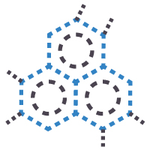
Polymer Science Course Details - Fees, Subjects, Syllabus, Duration, Eligibility, Career Scope
Degrees offered: M.Sc., Ph.D, M.E /M.Tech., BS, B.Sc.(Hons)
What is Polymer Science
Polymer Science, also known as Macromolecular Science, is a branch of Material Science which deals with polymers. Polymers can be either natural or synthetic. Synthetic polymers mainly include the plastics like thermoplastics, thermosets and elastomers. Polymer Science involves the in-depth study of subjects like Chemistry. Polymer Science is further divided into Polymer Chemistry, Polymer Physics and Polymer Characterization.
B.Tech in Polymer Science and Technology is an undergraduate engineering course of four years divided into eight semesters. In this course, polymers are studied in detail, and the course revolves around Polymer Science and the various technologies being used in it. A polymer engineer is trained to study, design and modify polymer materials. Polymer engineering covers the whole processing of polymers from analysis and design until testing. Management of the polymer products after the production is also dealt with. The major focus of the course is on the sub-branches of chemistry – organic, inorganic and physical. Polymer engineers are responsible for the development and maintenance of polymer products, working in the lab and on projects.
Eligibility Criteria (UG & PG) of Polymer Science
The aspiring candidates of B.Tech. (Polymer Science and Technology) must meet the following eligibility criteria for admission:
- Completed school with at least 50% aggregate in 12th with subjects Physics, Chemistry, Mathematics and English.
- Qualify entrance exams like JEE, BITSAT, IPU CET or any other equivalent exam.
Entrance Exams for Polymer Science
For admission in government institutes like NITs and IITs, etc. and some other private colleges in India, JEE Main and JEE Advanced exams are considered. Other than that, some colleges conduct their separate entrance exams for B.Tech. as well as M.Tech.
As per the latest trend, the different entrance exams for UG course are listed below:
JEE Main- Joint Entrance Exam is considered by most colleges like NITs (National Institute of Technology) for admission into a four-year B.Tech program under various specializations. In some colleges like NSUT (Netaji Subhas University of Technology), IGDTUW (Indira Gandhi Delhi Technical University for Women), and IIIT (Indraprastha Institute of Information Technology), etc., the rank based on the joint result of JEE Main score and 12th board marks is considered for deciding the deserving candidates. It is conducted by the National Testing Agency (NTA).
JEE Advanced- Joint Entrance Exam (JEE) – Advanced is the second round of JEE. Students who qualify JEE Main are eligible to appear for this exam. The rank and score of JEE Advanced are considered for admission into the different IITs (Indian Institute of Technology) across India. It is conducted under the Joint Admission Board (JAB).
IPU CET- Guru Gobind Singh Indraprastha University (GGSIPU), New Delhi conducts a Common Entrance Test (CET) known as IPU CET for admission under the various engineering courses available in the affiliated colleges across Delhi NCR.
VITEEE-VIT Engineering Entrance Examination is an entrance exam for B.Tech. aspirants conducted by Vellore Institute of Technology based in Vellore and Chennai.
BITSAT- Birla Institute of Technology and Science Admission Test (BITSAT) is conducted by BITS, Pilani for admission into UG engineering courses in the several campuses of BITS in the world.
SRMJEEE- Sri Ramaswamy Memorial (SRM) University, located in Chennai, organizes an online entrance exam called SRM JEE (Joint Engineering Entrance Exam) for admission into the engineering courses in their campuses across India.
ICAR AIEEA- All India Entrance Exam for Admission (AIEEA) is an entrance exam for admission to undergraduate engineering programs conducted by the Indian Council of Agricultural Research (ICAR).
Symbiosis Entrance Test (SET)- SET is a university-level exam organized by Symbiosis International University for granting admission to their UG courses across their different campuses.
CAT, LET and DAT by CUSAT-There are three admission tests conducted by the Cochin University of Science and Technology, namely the Common Admission Test (CAT), Lateral Entry Test (LET) and Departmental Admission Test (DAT).
Allahabad University-Undergraduate Admission Test (UGAT) and Postgraduate Admission Test (PGAT) are the entrance exams conducted by the University of Allahabad for giving admission into UG and PG engineering courses respectively.
NPAT by NMIMS- NPAT is an entrance exam conducted by NMIMS University for UG and PG engineering courses.
For PG course (M.Tech. or M.S.), the entrance exams are as follows:
Graduate Aptitude Test in Engineering (GATE)- For admission into M.Tech. Program of two years, a common entrance exam GATE is conducted jointly by seven IITs and Indian Institute of Science (IISc), Bangalore. The exam is based on questions of B.Tech. Course.
Graduate Record Examinations (GRE)- GRE is for getting admission into M.S. (Master of Science) postgraduate course, offered by universities abroad. Along with technical questions, it also has questions on language and reasoning.
Scope of Polymer Science in India and Abroad
With the increased use of plastics and other polymer substances in almost all the industries around the world, polymer science is growing very fast. The use of polymer-based products is increasing in our daily lives.
The polymer industry has seen an exponential increase in opportunities. There is a lot of scopes, especially in renewable energy and sustainability. Polymer engineers are given opportunities under the following areas:
Petroleum Industries
Chemical Industries
Companies producing polymer-based products
Colleges and Universities
Research Centres
Course Fees Polymer Science
| Minimum Fees | Maximum Fees | |||
|---|---|---|---|---|
| Private | Government | Private | Government | |
| UG | ||||
| PG | ||||
| DOCTORAL | ||||
Course Subjects
Polymer Science Subjects
Year-1 subjects include:
- Organic Chemistry
- Inorganic Chemistry
- Applied Mathematics
- Analytical Chemistry
- Applied Physics
- Fundamentals of Computers
- Engineering Graphics
- Physics Lab
- Chemistry Lab
Year-2 subjects include:
- Engineering Mechanics
- Strength of Materials
- Physical Chemistry
- Transport Phenomena
- Polymer Science and Technology
- Electronics
- Materials Technology
- Thermoplastics Polymer Technology
- The technology of Thermoset Polymers
- Analysis and Characterization of Raw Materials and Polymers
- Electronics Lab
- Physical Chemistry Lab
Year-3 subjects include:
- Chemical Engineering Operations
- Chemical Reaction Engineering
- Thermoplastics Polymer Technology
- The technology of Thermoset Polymers
- Synthesis and Characterization of Resins and Polymers
- Instrumentation
- Pigments and Additives for Polymers
- Compounding and Processing of Polymers
- Design and Fabrication of Molds
Year-4 subjects include:
- Industrial Management
- Technology of Elastomers
- Additives for Polymers
- Evaluation and Testing of Polymers
- Industrial Psychology and Human Resource Management
- Advanced Polymer Science and Technology
- Project Economics
- Design and Analysis of Experiments
- Project Work
Careers in Polymer Science
Career Prospects in Polymer Science
The course B.Tech. (Polymer Science and Technology) offers many opportunities in industries like Petroleum, Petrochemical and other prominent industries. It also offers jobs in the public sector like in ONGC, GAIL and other known companies. The various job profiles are polymer engineer, chemical engineer, and technology manager, etc. It also offers a good career in research and development.
Upcoming trends
Upcoming Trends and Technologies in Polymer Science
The latest trends in the polymer industry are:
Solid-state Physics
Petrochemical Industries
Supra-molecular Chemistry
Quantum Physics
Crystallographic Materials
The upcoming advancements in Polymer Technology are:
Bio-mass Derived Isoprene – Isoprene is a molecule which helps in the production of tires. It is derived from trees and grass (biomass). It is an alternative to the tires made by traditional methods of using fossil fuels; this will help in preserving our limited resources.
Multi-functional, Self-healing Hydrogel – It is a water-swollen 3D polymer which is known for self-healing when cut. It is used in aeronautics and chemical industries, etc.
Stickier Super Glue – It is a type of glue which does not get hard when it dries up and is non-solvent. Can be used in implanted devices and electronic skin.
Job Profiles and Top Recruiters
Polymer Science: Job Profiles
The top and most common job profiles available after this course are:
Job Profile | Description |
Responsible for development of plastics including analysis, design and testing. | |
Responsible for assisting in the work of different chemical processes of polymer development. | |
Technology Manager | Responsible for looking after the IT Department and other technical requirements. |
Professor | Responsible for teaching high school or college students. |
Responsible for selling polymer products and explaining scientific details and benefits to services. | |
Business Developer | Responsible for looking for new and unique business opportunities in the market. |
Project Coordinator | Responsible for carrying out research and assisting in projects – off or on the field. |
Research Scientist | Responsible for deep study and research in polymer science for its advancement. |
Polymer Science : Top Recruiters
The top recruiters for Polymer Engineers are:
Reliance Industries
Tupperware
Milton
Asian Paints
Ministry of Petroleum & Natural Gas
Oil India Laboratories
Petrochemicals Engineering Plants
Gujarat Fluorochemicals Ltd.
Haldia Petrochemicals Ltd.
Linde India Ltd.
Oil & Natural Gas Commission
Finolex Industries
GAIL India Limited
Tata Chemicals Ltd.
Aarti Industries Limited
BASF Construction Chemical India Pvt. Ltd.
Solar Industries India Ltd.
United Phosphorus Ltd.
Average Salary
The average salaries of top job profiles offered after this course are mentioned below. These are only for reference.
Job Profile | Average Salary |
Polymer Engineer | Rs. 6 Lakhs p.a. (Approx.) |
Chemical Engineer | Rs. 5 Lakhs p.a. (Approx.) |
Technology Manager | Rs. 2 Lakhs p.a. (Approx.) |
Professor | Rs. 6 Lakhs p.a. (Approx.) |
Sales Engineer | Rs. 3 Lakhs p.a. (Approx.) |
Business Developer | Rs. 4 Lakhs p.a. (Approx.) |
Required Skillset for Polymer Science
Required Skillsets for Polymer Science
Creative mind
Should be updated on the latest scientific developments
Strong critical, analytical and problem-solving skills
Good quantitative aptitude
Soft skills, teamwork, good communication skills and interpersonal skills
Good knowledge of Chemistry and Physics
Course Curriculum for Polymer Science
The course is of four years having eight semesters. First-year has subjects common with all the branches of engineering. From second year subjects of Polymer Science are taught along with laboratory activities. You will be well-versed with the technicalities of Polymer Engineering till the fourth year.
Industrial exposure training is required at the end of the third year, along with the submission of its report. Organizations might as well give you a Pre-Placement Offer (PPO) if your performance is outstanding.
In the fourth year, there is a placement process conducted in colleges where various companies come to the campuses and conduct rounds of the selection process to choose suitable employees.
The students can kick-start their career right after completing the course with the job acquired in campus placement. You can also apply off-campus. You also need to work on a project in a group or individually and submit it along with the report at the end of the final year.
Popular Polymer Science Entrance Exams in India
CUET UG
Exam Date: 08 May, 2025 - 01 Jun, 2025
Karnataka PGCET
Application Process: 24 Apr, 2025 - 10 May, 2025
IELTS
Exam Date: 24 Apr, 2025
Frequently Asked Questions (FAQs)
Question: What is the scope of usage of polymers?
Answer :
The use of polymers and polymer-based products is increasing day by day. PVC, thermoplastics, and other plastics are found in many daily used products. Polymers are also used in renewable energy and sustainability and energy conversion.
Question: Are there jobs for Polymer Engineers in the public sector?
Answer :
Yes, organizations like Oil and Natural Gas Commission (ONGC), Oil India Laboratories, and others have job opportunities available. You can also apply for teaching jobs in government through UGC NET Exam.
Question: What are the top polymers used in products today?
Answer :
Polystyrene
PVC
LDPE
LLDPE
Polypropylene
Abs Resin
HDPE
Question: What are the main subjects in this course?
Question: Is Polymer Engineering course good?
Answer :
Yes, it is a good course with many opportunities. Use of polymers is increasing in our daily lives. Hence, it is in demand.
Questions related to Polymer Science
In IDOl m tec in polymer science is available
Hello,
You have tagged Travancore Engineering College which only offers BTech and lateral BTech entry into the following discipline;
- Computer Science and Engineering
- Electrical and Electronics Engineering
- Civil Engineering
- Mechanical Engineering
check out the official website at https://travancoreengg.ac.in/admission# to know more details regarding this.
sujects comes in msc in polymer science
Hello!
These are some of the topics/subjects that are taught in MSc Polymer Science-
Organic Chemistry and Inorganic Chemistry, Physical Chemistry, Introduction to Polymer Science, Analytical Chemistry of Polymers, Chain Polymerization, Condensation Polymerization, Physical Chemistry of Polymers, Rheology and Mechanical Properties of Polymers, Techniques of polymerization, Stereochemistry, Thermodynamics, Chromatography etc.
In addition you can refer to these books if you're planning to pursue MSc Polymer Science-
- Chemical kinetics –K. J. Laidler
- Thermodynamics-Kuriacose and Rajaram
- Advanced Inorganic chemistry by J E .Huheey.
- Organic chemistry-Morrison and Boyd (Prentice Hall)
- TextBooks of Polymer Science –Bill Meyer (Wiley Inter Science Publishers)
Hope this helps!
what are the career and job options after msc polymer science
hello aspirant,
below are career and job options after msc polymer science:
Manager - Lab
Innovation Leader
Production Supervisor - Chemical
Field Operator Polypropylene
Process Engineer
Polymer Chemist
Chemist or Officer - Quality Control, Quality Assurance (Polymers)
Organic and Polymer chemist
Officer, Executive, Production (Polymers)
Chemist - Electrochemist
Head (Quality) - Textile/Fibre/Chemistry
Sales Executive/Officer
Chemical Research Associate
below is a very useful link do not forget to refer to this: https://www.careers360.com/careers/polymer-engineer
hope this helps,
thankyou.
i have appeared gate with chemical engineering paper, is this paper is eligible for masters in polymer science
See Master in Polymer Science comes under the genre of the Engineering Sciences. As per most of the universities, the admission to this courses are provided on the basis of the XE or Engineering Science paper of GATE.
Now if you go for the course of the MTech Chemical Engineering then also you can specialize in the following fields:
- Chemical Engineering
- Energy Engineering
- Process Control & Instrumentation
- Biotechnology
- Chemical Process Design
- Chemical Plant Design
- Industrial Pollution Control
- Industrial Biotechnology
- Computer Aided Process and Equipment Design
- Polymer
So yeah! You are also eligible for the Polymer Science through the Masters in Polymer Sciences.
To know more about the GATE CHEMICAL ENGINEERING preparation tips, visit the link below:
https://engineering.careers360.com/articles/how-prepare-for-gate-chemical-engineering
To know more about the Polymer Science visit the link below:
https://www.careers360.com/courses/polymer-science-course
I hope this answer helps. All the very best for your future endeavors!
Can Bsc BZC candidate is eligilble to take Polymer science in MSC
Hello student ,
The eligibility criteria for MSC in polymer chemistry/polymer science states that the candidate must have completed graduation in any relevant subject such as chemistry, mathematics, physics, etc., with minimum 50% marks from a recognised university. However the eligibility criteria may change slightly for different colleges and universities. So, you must check accordingly before applying.


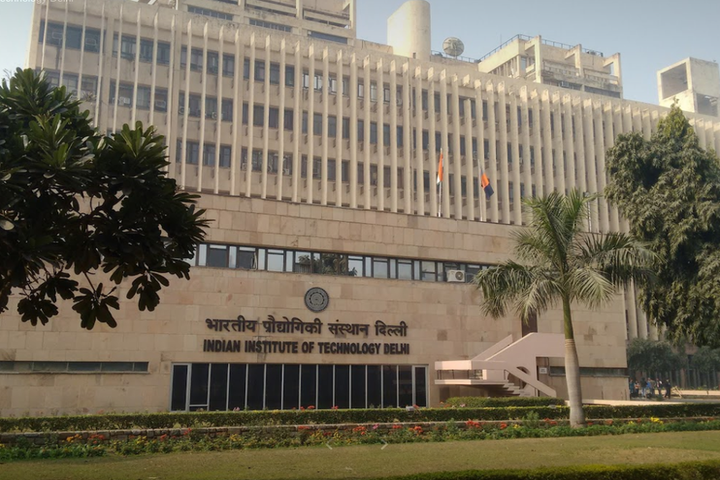

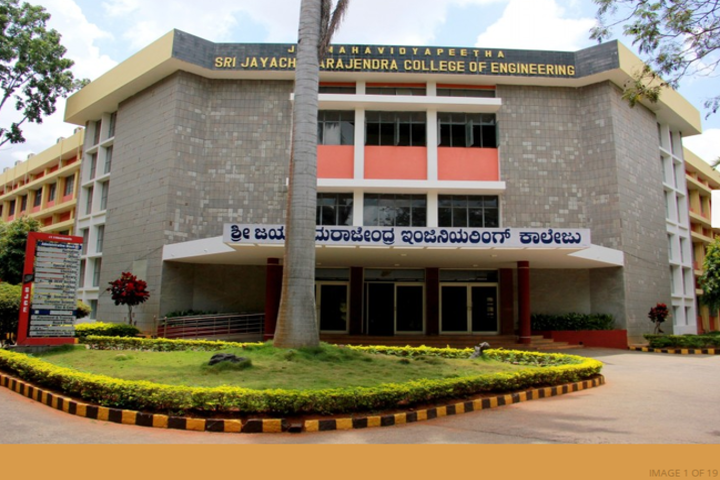
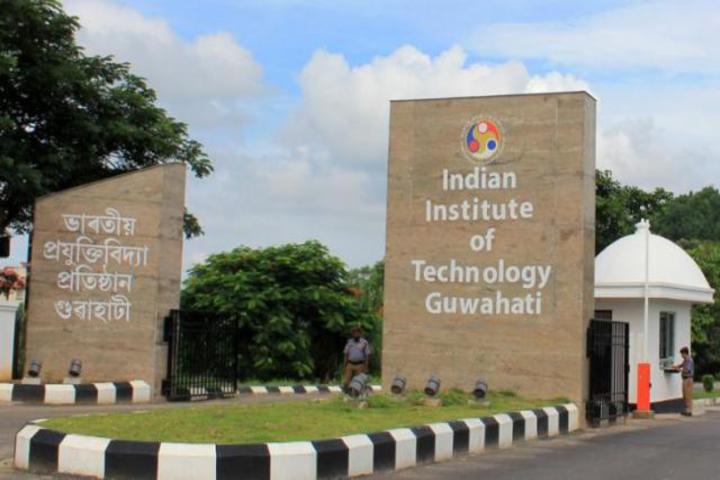

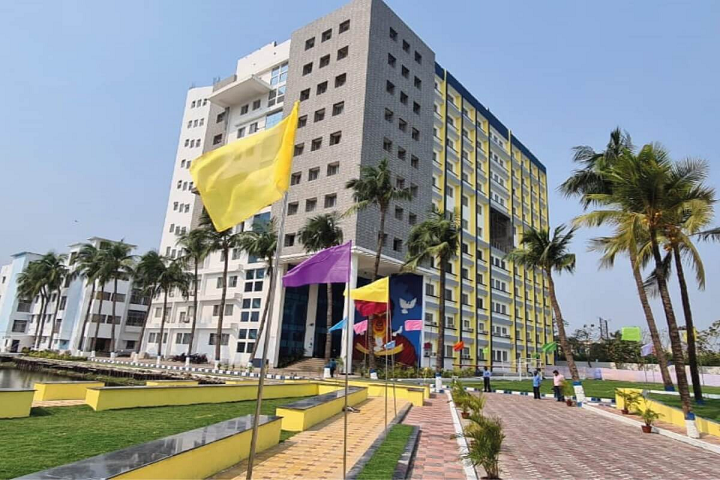
.jpg)


 Answer later
Answer later

